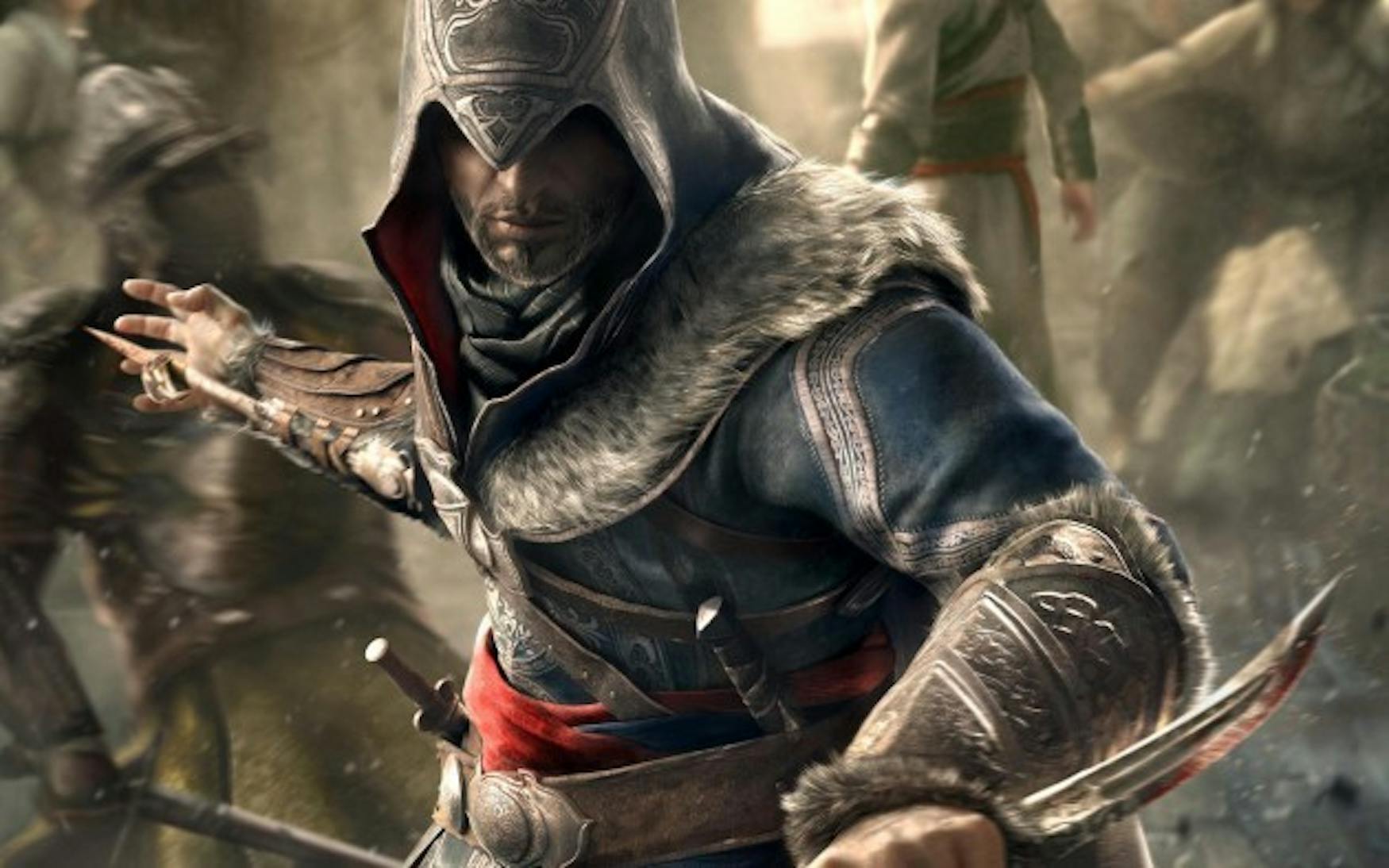Characters reunite in 'Creed'
Story is an integral component of any art form, and while it may not be as essential to video games as to other modes of creativity, a story elevates a good game to a great game. One of the best cinematic stories I've encountered in a recent game is that of Assassin's Creed: Revelations. The intricate, absurd and wildly original plot of Assassin's Creed revolves around protagonist Desmond Miles, an assassin-in-training who interacts with a machine called the Animus, a device that uses neural mapping and reconfiguration to plunge Desmond into the memories of his ancestors Altair and Ezio, each of whom goes on his own journey to prevent artifacts known as the Pieces of Eden from falling into the hands of the evil Templars, who wish to use them to achieve world domination.
In Revelations, Desmond finds his mind trapped in the "core" of the Animus. The machine's bleeding effect (which allows Desmond to adapt his ancestors' skills) has become so corrosive that he has lost his sense of self, and the Animus can no longer sort out his memories from that of Altair's in 12th-century Jerusalem, or Ezio's in 15th-century Italy. Desmond must delve through both his ancestors' memories one last time while reliving his own in order to separate the three identities or risk "deletion."
Meanwhile, Ezio also relives the memories of Altair through devices that the Assassin crusader developed, called Masyaf Keys. These keys allow Ezio to experience the life of Altair in its entirety, a journey that reflects upon Ezio's own personal quest for meaning. Ezio's travels also lead him to Constantinople, where the game creatively drops him right in the middle of the Byzantine-Ottoman wars. The method by which the game infuses its own creative branch of storytelling with historical events is truly marvelous, adding deeper layers and a stronger sense of legitimacy to the proceedings.
As a gamer, you are placed alternatively in the perspectives of Desmond, Ezio and Altair. And though it is Ezio who is the central driving force of this particular Assassin's Creed outing, you experience segments of each of the characters' lives, and they are fleshed out so fully that the player begins to feel an emotional connection to each of them.
As for the other facets of the game, they are just as compelling. The gameplay mechanics are excellent, if somewhat familiar. Ezio's combat skills are thrilling, with different weapons to use including swords, axes, maces, guns and brand-new bomb-throwing mechanisms, all of which give the player a fluid and varied combat experience.
The rest of the gameplay is extremely familiar to Assassin's Creed players. Constantinople is Ezio's playground as you climb, jump and swing across rooftops. Ezio has a new, extended hook blade that makes getting around even easier than before. The mission styles are basically variations on modes we've seen before—there's a target to assassinate, information to collect, a disciple to protect, etc. and you must do so through combative or stealth means. There's a particularly fun mission where Ezio dresses up as a circus performer and infiltrates a carnival to track down a Byzantine spy. His costume is hilarious and, during the mission, every single button, instead of being used for combat, is used to prompt Ezio to sing a different song while playing his banjo. For the most part, these missions are all familiar, but what they lack in innovation they make up for in fun factor.
Another excellent component of the game is Assassin-recruiting side quests. Throughout the game you are allowed to recruit up to 12 Assassin trainees who you may call to your side to defend you during combat and also bring to do special missions alongside you. You train them through meta-assignment maps of the Templar-controlled cities across the world. You send your Assassins to these cities for a variety of missions so that they rack up points and level-up. When they've reached high enough levels they make take over Assassin dens that you've established throughout Constantinople and they become more powerful assistants in combat while securing your control of the city.
The best new gameplay addition to the series are the "Desmond's Journey" mini-games, which prove a radical departure from the series. These side missions are a first-person puzzle game in which you navigate through block structures called data-streams that represent memories from Desmond's life. These bits are fascinating, as Desmond provides narration, describing his upbringing and eventually how he came to be kidnapped by Abstergo in the events of the first game. Though the scenery in this mode tends to be a bit repetitive and the block-building techniques occasionally frustrating, it's a refreshing break from the traditional third-person action/adventure mechanics, and the quest to uncover Desmond's identity provides a fascinating narrative. As with the rest of the game, story fleshes out and gives mastery over what would otherwise be a significantly diminished effort.
The graphics for Revelations reach a new height in this game: Constantinople is absolutely gorgeous to behold, and the character animations have never looked more fluid. The sound design is also superb with a wonderful musical score which really adds emotional weight to the events. And the voice acting is phenomenal, with the performers giving a sense of realism and honesty in their voice-overs which really help invest the players in their characters.
But the knot that ties these loose threads together and invariably tightens them is the story. If this were the end of the series (Ubisoft is developing at least one more game for release later this year), it would be a conclusion that exemplifies the cinematic potential that a video game can achieve.



Please note All comments are eligible for publication in The Justice.